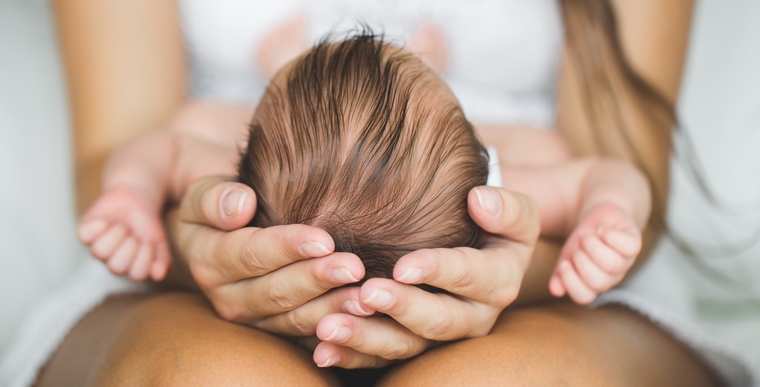Posted By: Amy Tubb
27th November 2018
3 minute read

Thousands of pregnant women and new mums in Northern Ireland who suffer from mental health problems are at risk of receiving inadequate levels of support, new research has found.
The research, from NSPCC Northern Ireland, the Royal College of Midwives (RCM) and the Community Practitioners and Health Visitors (CPHVA), has found increased strain is being put on midwives and health visitors across Northern Ireland with the issue currently receiving insufficient attention from policy-makers.
In Northern Ireland, this will affect approximately 2,400 to 4,800 live births each year[1]. If untreated, perinatal mental illnesses can have a devastating impact on women, babies and families.
The new report, Time For Action, published on 26th November by NSPCC Northern Ireland and partners, highlights gaps both in the identification of mental health illnesses and the response provided to women once they have disclosed problems or been detected in primary care. In its key recommendations, the report calls for the development of specialist services for women including a mother and baby unit for women who need close care and supervision and a training standard on perinatal mental illness for all professionals in Northern Ireland who care for women during this period.
MMHA’s Northern Ireland Co-Ordinator Lindsay Robinson said:
“If left untreated, perinatal mental health conditions can have devastating consequences for women and their families and we know that many hundreds are affected by these problems every year in Northern Ireland.
“There are clear national guidelines setting out that specialist services for women are vital. Despite this, Northern Ireland is the only part of the UK which has not invested in them.
“Specialist perinatal mental health services save lives – that’s why we’re calling for the development of specialist services for women in Northern Ireland, including a mother and baby unit for women who need close care and supervision. ”
Midwives and health visitors who took part in the research stressed that continuity of care and face to face time with mothers and babies is crucial for improving identification of problems and providing support. But the research found that this was undermined by underfunding, overwork and growing levels and complexity of demand.
While the research found that health visitors and midwives in Northern Ireland experience similar types of challenges in identifying and responding to perinatal mental illnesses as their counterparts in the rest of the UK, professionals in Northern Ireland have not benefitted from the levels of investment made in England, Scotland and Wales. Northern Ireland is the only part of the UK which has not committed to investment of funds in perinatal mental health, despite major funding (£390m) having been pledged via the Barnett formula in 2016.
The report calls for:
The research involved a survey of 332 health visitors and midwives located across all five Health and Social Care Trusts in Northern Ireland[1]. The survey covered the following topics: recognition, referral and management of perinatal mental illness; training; and opportunities and challenges. It also gathered demographic information
A cautious estimate based on 2016 workforce census headcount data put the final survey sample at approximately 23 per cent of the health visitor population and 15 per cent of the midwife population (rounded to the nearest percent). See Department of Health and NISRA: https://www.health-ni.gov.uk/news/ni-health-and-social-care-workforce-census-march-2016.